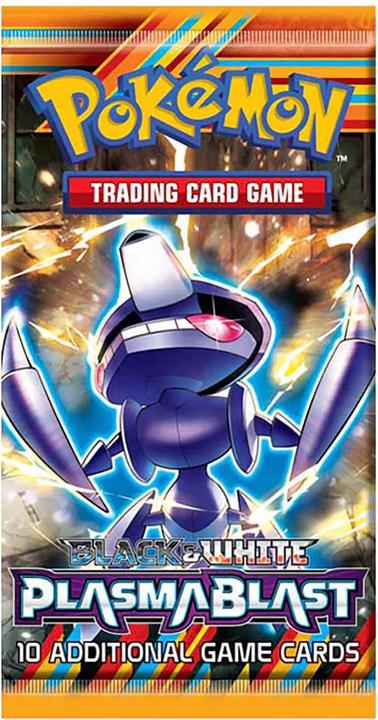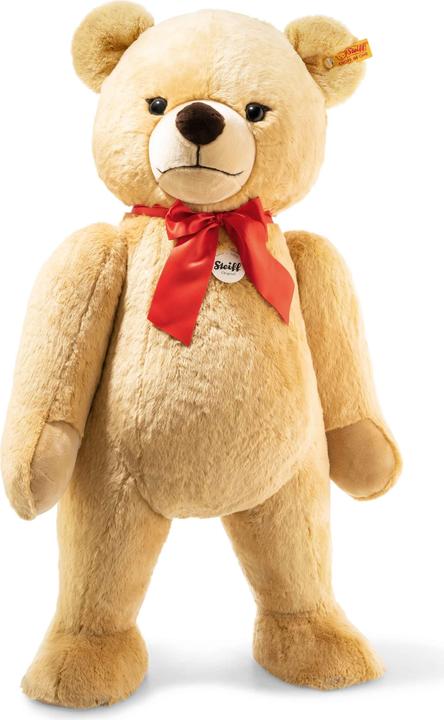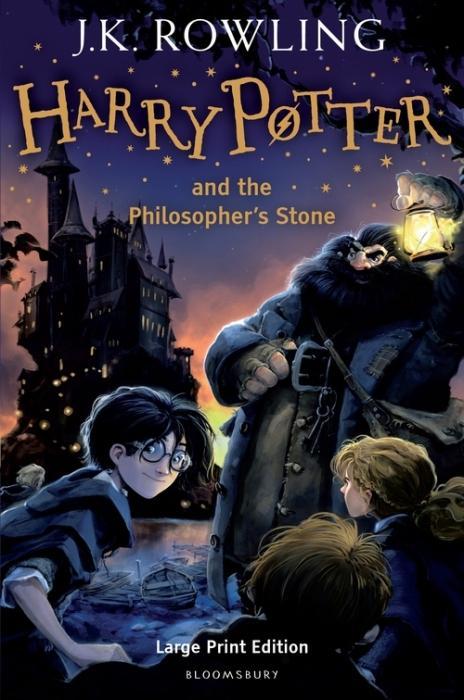

Are you sitting on a gold mine? Valuable collector’s items from the nursery
Rare toys and collector’s cards are traded for huge amounts. Who on earth would pay so much money for a piece of fabric, plastic or paper? Here are five expensive cases, including one which could even be described as heart-warming.
In many households, things that have been around for a certain amount of time earn the right to stay forever. At this point, they’re simply there and have become part of the furniture. Once-beloved toys are relegated from shelves to cupboards, from cupboards to the basement and then, at most, from one corner to another.
If you have enough space and cling to the past, you’ll leave former nurseries untouched to gather dust – and, if you’re lucky, discover years later that old is gold in the current zeitgeist. Especially when the items you discover are as good as untouched.
Not reading pays off
That’s what happened to a British man who was confronted with the relics of his childhood when his parents moved house. He held a book in his hands again, which he’d bought for 10.99 pounds from his pocket money in 1997. He’d never read it and forgotten it was sitting on a shelf. Harry Potter and the Philosopher’s Stone was just gathering dust. The fact that the volume had survived almost three decades in perfect condition paid off this summer: 56,000 pounds were paid for the well-preserved first edition which wasn’t ruined by dog-ears or grease stains.
«I’m pleased and grateful we didn’t throw the book away during the move,» the man who’s just multiplied his pocket money by five thousand, was quoted anonymously (page in German). That’s understandable. But this pales in comparison to the 471,000 dollars another first edition achieved at an auction in Dallas in 2021. So, if you find this book on the shelf in English and the title on the back is missing an «o» in Philosopher’s Stone – get yourself to the nearest auction house.

Collector’s cards, as expensive as star players used to be
You might not notice you’re sitting on a goldmine, as I realised again a few days ago when Lionel Messi changed hands for 1.5 million dollars (page in German). Or a small photo of him, to be more precise. For a price that would’ve been paid a few decades ago for the services of flesh-and-blood superstars, you can get a Panini picture today. If the Argentinian player wanted to own the photo of himself from the 2004/2005 season, he would have to pay about one regular month’s salary from his employer Inter Miami for it. At least the specimen is still in perfect condition.
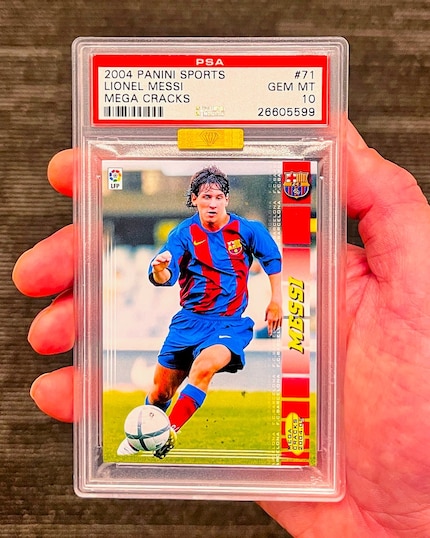
Source: x.com/FanaticsCollect
These cards were made to be played with, collected and traded. So it makes no sense that they go down in value every time they’re handled and clueless people like me could throw a few old pictures away at any time. Now I think about it, where are the Pokémon cards my son was keen on a few years ago? Who knows what hidden treasures could be among them. Probably none. The older children on the playground always knew which cards they had to trade with the younger ones to get a good deal. Practice makes perfect if you want to seriously get involved in the collecting game later on. It’s still unbelievable how high the prices can spiral.
The most expensive Pokémon card of all was once awarded as a prize in a painting competition. Anyone who received one of the 20 llustrator CoroCoro Comics promo cards as a prize in 1997 and kept good care of it had the last laugh 20 years later: from a quarter of a million dollars in 2020, prices rose to 5.275 million dollars, which YouTuber Logan Paul put down for a perfect specimen. This brought him attention and millions of additional clicks – and, at some point, when the time is right and if he keeps his hands off it, maybe he'll even make a return on his Pokémon investment.
Plastic figurines worth the same as a new car
Now we’re talking about pocket change in comparison. With treasures from the world of a generation of collectors who grew up with shadow boxes on the wall. Collectibles led a miserable existence in dusty compartments or behind plexiglass. Toy cars, semi-precious stones and collector’s figurines were just waiting to be forgotten about or replaced by posters. In most cases, this was the far better choice and the «exhibits» were thrown away. However, even in pre-internet times, a dynamic market for painted plastic hippos and other creatures found in Kinder Surprise eggs developed among those in the know.
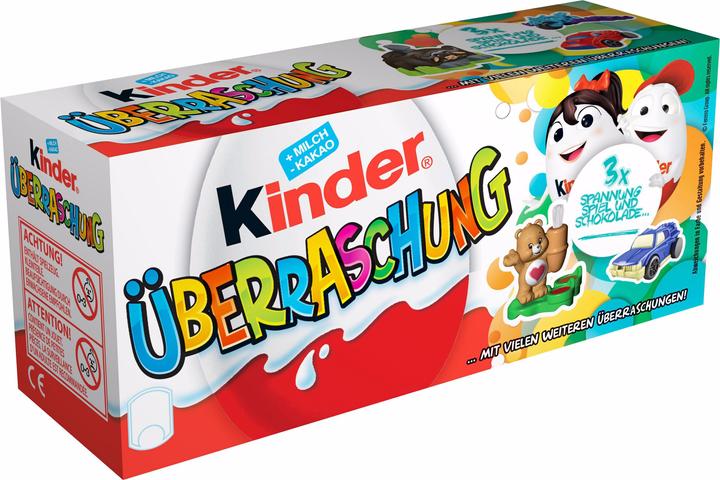
Kinder Children surprise 60 g
60 g
When it comes to prices, the blue Watchman Smurf leads the way. The reason? Only one made from dark blue plastic is known to exist, which is painted white and is therefore said to be worth a small fortune of just under 30,000 euros or francs.
Presumably only one is known to exist, because the other 499 are still sitting unnoticed in the former nurseries of today’s 50-year-olds, where they’re regularly dusted off by 80-year-olds. You learn something new every day: not all Smurfs are blue. And they’re not all equally valuable. Even if you added all the others together, they still wouldn’t come close to the Watchman Smurf.
Hotly hyped monsters
Give me the good old Smurfs any day, no matter what condition they’re in, instead of the creatures that have been unleashed on the world this year: Labubu here, Labubu there, Labubu everywhere. If, like me, you’re already rolling your eyes at the «normal» prices for these dolls with the sharp-toothed grin, we raise you this: a good 150,000 dollars is what a child-sized monster figurine fetched in June of this year. And that’s just the tip of the hypeberg. Professional collectors naturally strike when they sense the prospect of an increase in value. But prices are plunging right now.
If you have any of these omnipresent ugly creatures lying around because your kids haven’t stopped begging you for them, just leave them for a few more decades. Who knows – maybe when today’s children and teenagers experience their midlife crisis, the irrational world of collector’s desires will look radically different again. Perhaps prices will go through the roof again, and you’d be pleased to have any monster. So you can keep your old teddy. Unless it’s wearing luxury fashion. In that case, go ahead and turn it into money.
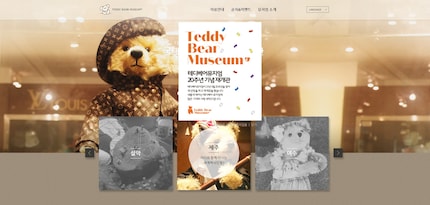
Source: Screenshot teddybearmuseum.com
The world’s most expensive teddy bear
The world’s most expensive teddy bear is a coolly calculated PR stunt. When Steiff, the manufacturer of pricey plush toys, teams up with the luxury brand Louis Vuitton, the result is something I would sell in a heartbeat for a good 200,000 francs or euros. The 45-centimetre bear fetched this sum at Christie’s in 2000. Today it’s in the Teddy Bear Museum in Jeju, South Korea, and presumably increases in value just by standing around. Petsy looks furious. What does the most expensive Steiff bear have that he doesn’t?
Clothes by Louis Vuitton and a real gold earring! All this might be impressive, but doesn’t mean it was really loved. The second most expensive Steiff bear tells a much more interesting story. «Teddy Girl» had seen a lot when it, or rather she, was sold at auction in 1994, worn and dishevelled, from the estate of Colonel Bob Henderson for a good 170,000 dollars.
The World War II veteran had distinguished himself throughout his life as a great collector of teddy bears and always kept «his» bear, which he was given as a child, by his side, even during the war. He later collected many, many more and became co-founder of Good Bears of the World. This organisation aims to bring teddy bears to those who aren’t looking for money, but who are in need of comfort most of all.
Simple writer and dad of two who likes to be on the move, wading through everyday family life. Juggling several balls, I'll occasionally drop one. It could be a ball, or a remark. Or both.
Interesting facts about products, behind-the-scenes looks at manufacturers and deep-dives on interesting people.
Show allThese articles might also interest you

Background information
7 successful products invented by children
by Michael Restin

Background information
Weird records, expensive adjudicators and propaganda: facts about the Guinness Book of Records
by Martin Jungfer

Background information
She didn't want to make hidden object books, now she owns the genre
by Ann-Kathrin Schäfer
